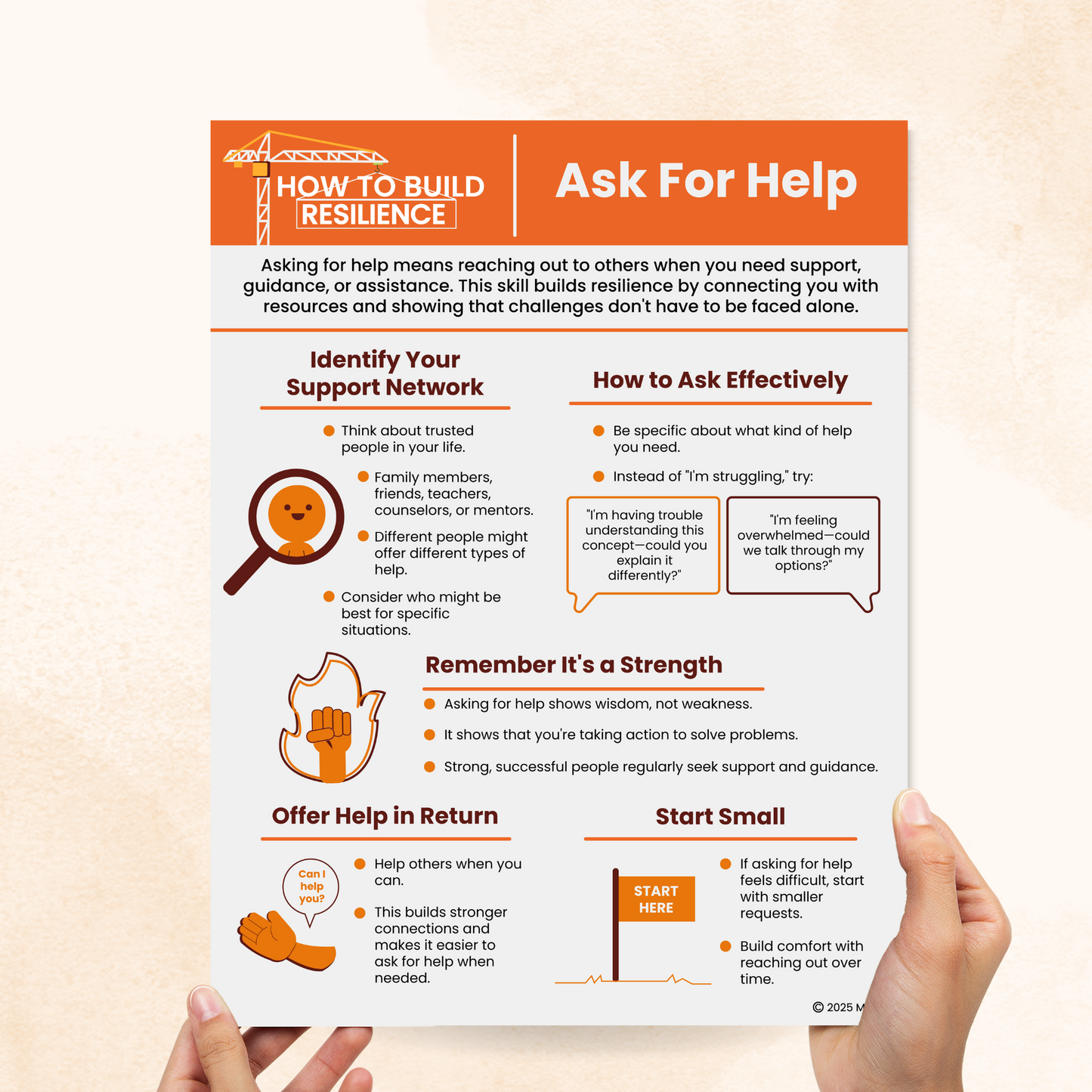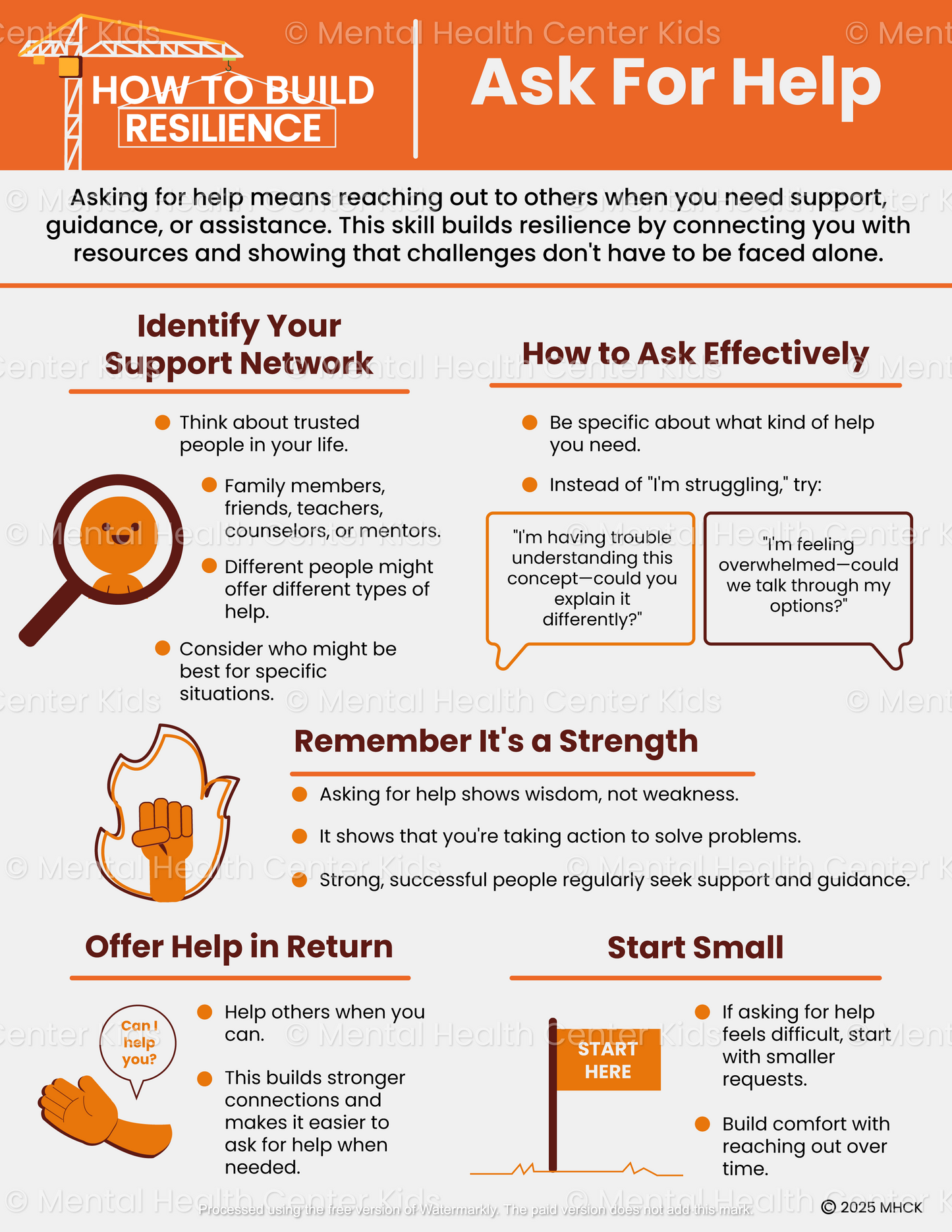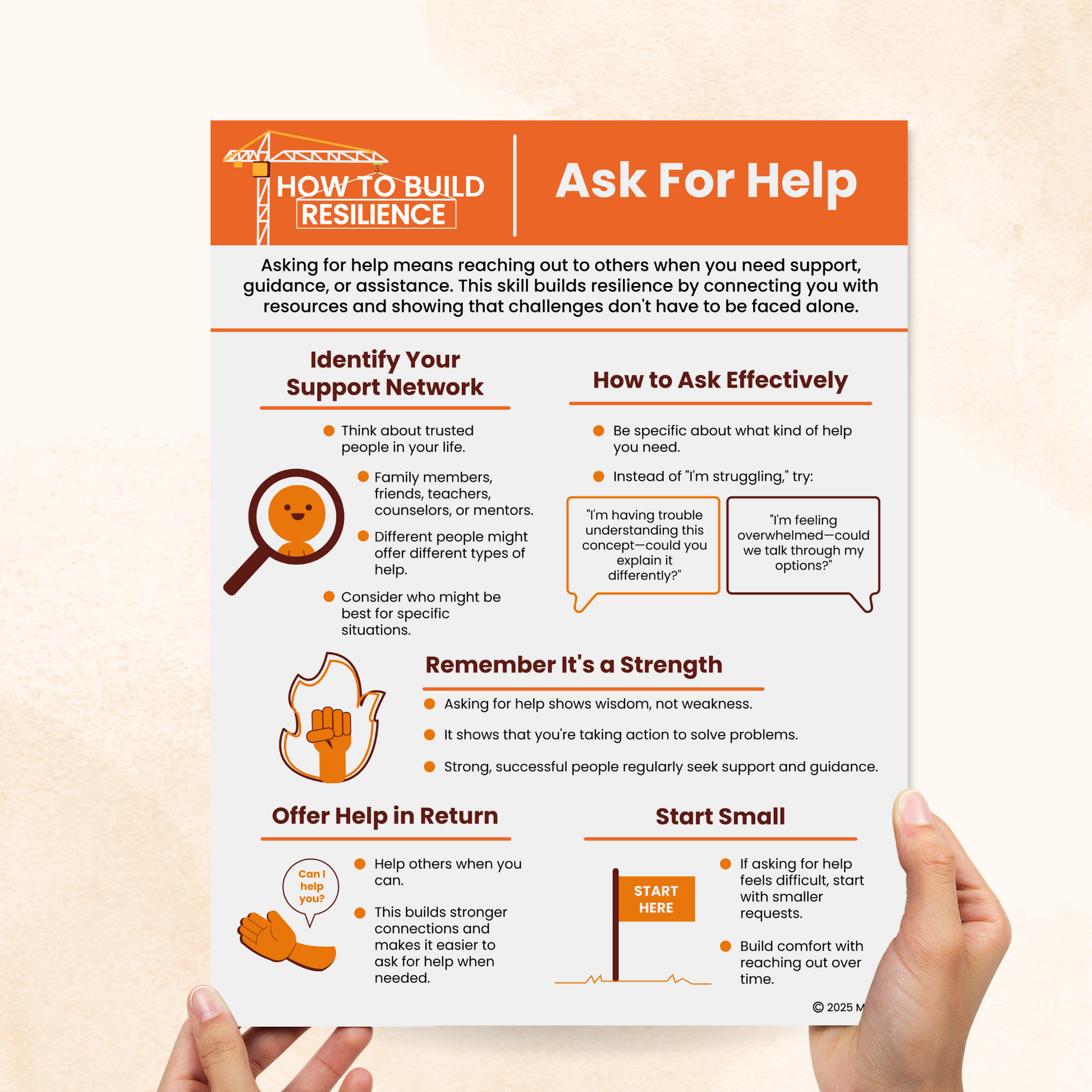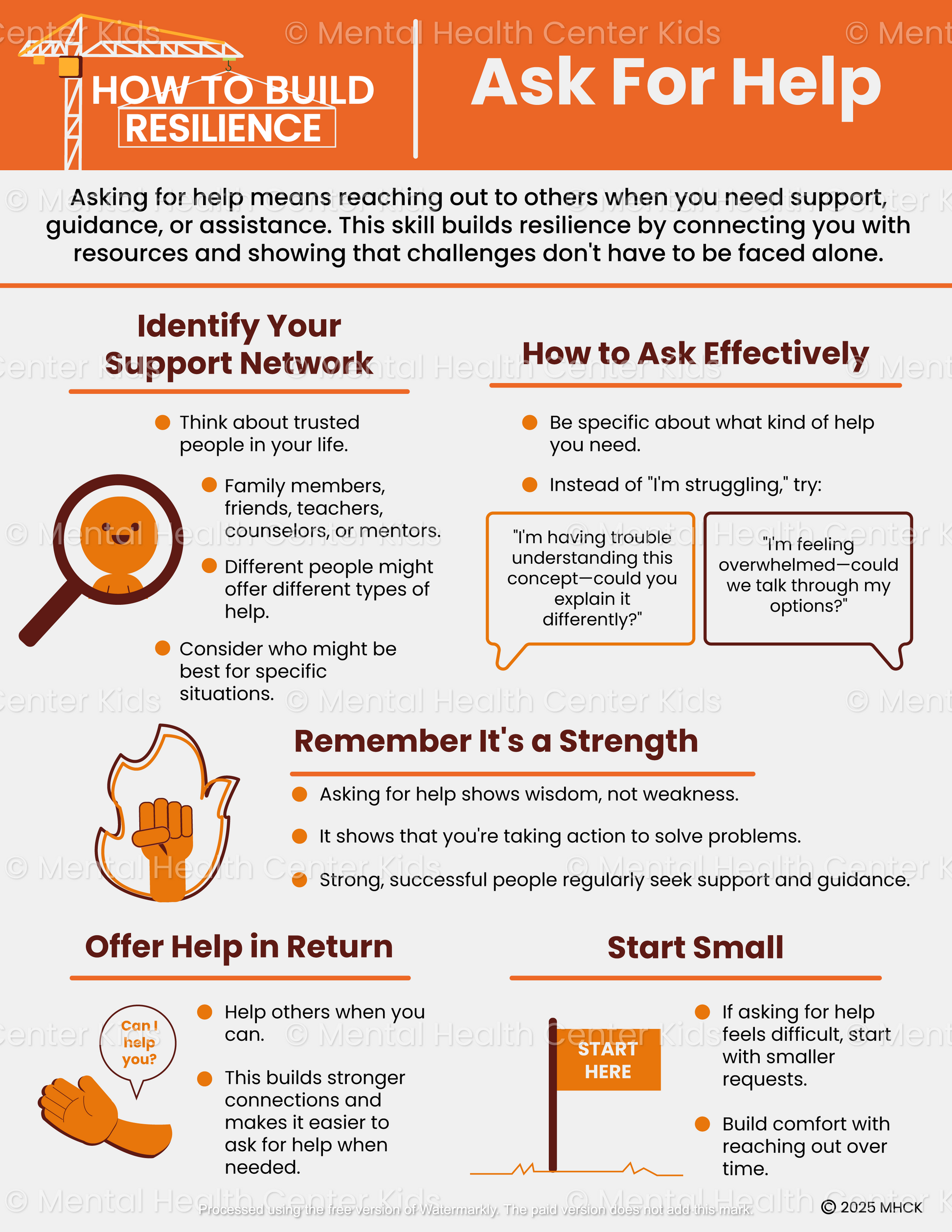Ask For Help - How To Build Resilience



Some people would rather struggle in silence than speak up — not because they want to, but because asking for help can feel scary or embarrassing. This hesitation can begin in childhood, when some are taught (directly or indirectly) that asking for help is a sign of weakness. Over time, this belief can lead clients to push through overwhelming situations alone. Asking for help can build resilience by connecting clients with resources and helping them understand that they don’t have to face challenges alone.
The Ask For Help handout is designed to help clients reframe seeking help as a strength. It introduces clients to 5 helpful tips: identifying their support systems, learning how to ask effectively, recognizing that asking for help shows wisdom, offering help in return, and starting small.
As kids and teens learn these skills, they begin to understand that asking for help isn’t a burden — it’s an act of courage, self-respect, and trust. A simple place to start is to name just one person they feel safe turning to and practice how to ask for something small.
Adults can play a key role by modeling help-seeking themselves. This will reinforce the message that it’s okay to lean on others sometimes. Another idea is to create a “help menu” at home or in the classroom with a short list of ways children can ask for support.
*This item is an instant digital download. A link to download your files will be emailed to you once payment is confirmed.
Want more resources like this? Check out our full catalog of trauma worksheets.
References:
- Barker, G., Olukoya, A., & Aggleton, P. (2005). Young people, social support and help-seeking. International Journal of Adolescent Medicine and Health, 17(4). https://doi.org/10.1515/ijamh.2005.17.4.315
- Dueñas, J., Camarero-Figuerola, M., & Castarlenas, E. (2021). Academic help-seeking attitudes, and their relationship with emotional variables. Sustainability, 13(11), 6120. https://doi.org/10.3390/su13116120
- Every-Palmer, S., Grant, M. L., & Thabrew, H. (2022). Young people don’t tend to ask for help more than once: Child and adolescent psychiatrists’ views on ailing mental health services for young New Zealanders. Australasian Psychiatry, 30(6), 684-688. https://doi.org/10.1177/10398562221115624
- Hang Nguyen, P. T., Huynh, V., Thanh Duong, T. T., Linh Le, T. T., Ly, T., Nguyen-Thi, M., Luu-Thi, H., & Tran-Chi, V. (2023). Gratitude, parental support, professional help-seeking attitudes for mental health problems among adolescents. International Journal of Adolescence and Youth, 28(1). https://doi.org/10.1080/02673843.2023.2287112
- Instant digital download
- File: PDF
- Size: 8.5" x 11"




